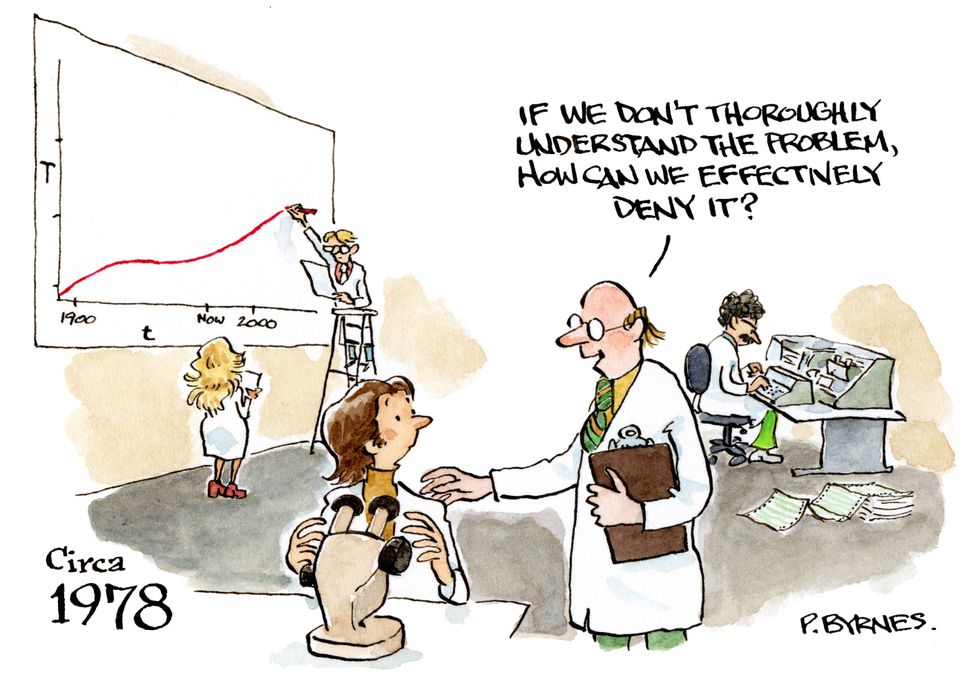It’s official: 2023 was the hottest year on record. There is surprisingly little about it in the news, but lawyers are gearing up for a hot new year in court to do what they can to protect a livable climate. Climate litigation is the new game in town. The first big case was won by Urgenda in the Netherlands in 2019. Formed out of the words urgent and agenda, the Urgenda foundation and 900 Dutch citizens demanded that their government act according to the science. It took six years to win.
In 2021, Neubauer v. Germany resulted in the German government being forced to revise its 2019 climate law and tighten its targets for decarbonization. The German case was unique in that the highest court affirmed the government’s responsibility not only to its current citizens, but also to future generations.
In the U.S., recent successes in climate litigation are encouraging. Early this year, a judge in Oregon denied the Justice Department’s motion to dismiss a complaint agains the federal government by 21 young plaintiffs.
What will our grandchildren think, both of the young people in court and those opposing them?
It was reminiscent of last summer, when 16 young plaintiffs convinced a judge in Held v. State of Montana that their government must take the climate crisis much more seriously. The Washington Post called the decision “one of the strongest decisions on climate change ever issued by a court.” Of course, there is something fundamentally wrong when young people have to sue their government for the right to a clean and healthful environment. It should be any government’s priority and desire to protect the young.
Future generations devastated by climate impacts will look back on this period and see mostly elderly politicians mostly ignoring climate science—or worse, deliberately banning climate science from being considered. The fact that the Montana state prosecutor appealed the ruling within weeks underscored how much damage climate denial has done. What will our grandchildren think, both of the young people in court and those opposing them?
Now that 2023 has been declared the hottest on record, and possibly the warmest in over 100,000 years, you’d think even the most stubborn climate deniers would come to their senses. But of course, it’s not really the deniers we need to worry about. After all, even the well-funded machine that invented climate denial was never really based in denial; in fact, quite the contrary.
As Harvard historian of science Naomi Oreskes and others have been revealing for years (just watch the film Merchants of Doubt), fossil fuel giants found out decades ago—from the scientists they had hired—that their products were going to heat the planet. They knew their own scientists’ findings would require regulations and incentives that would favor renewable energies like solar and wind. So they simply invented the myth of climate change denial so they could keep raking in the dough.

They also found willing amplifiers of their myth by telling them that any regulation was a communist ploy that would ultimately not only hurt the economy but curtail all the freedoms Americans hold dear. They are not coming to their senses. They are running for office. They are exporting their ideology to Germany, to the U.K., the European Union, and beyond, even though they have started losing.
It is not just elected officials and fossil fuel executives who should be paying attention. Last summer, lawyers from Client Earth wrote a letter to the Global Public Policy Committee (GPPC) representing senior leaders of the world’s largest accounting firms—BDO, Deloitte, EY, Grant Thornton, KPMG, and PwC—pointing out that they are not doing what they pledged to do with regards to transparency around climate risk, neglectful omissions that could potentially expose them to lawsuits as well.
To be sure, climate litigation is only one tool in the toolbox, and its results can be mixed, as BBC reporter Isabella Kaminski recently concluded.
But we have long known that Exxon and other fossil fuel companies lied about what they knew about the danger of climate change, and they have rightly been facing increasing legal trouble. The fact that they keep lying and are even exporting their methods is particularly devastating at a time of mounting climate disruption and a rising death toll from extreme weather events.
The myth of climate denial and the rejection of climate protection measures are sold to voters everywhere under the guise of freedom. But they only protect the freedom of fossil fuel billionaires and polluting industries to keep profiting from harming us all. The truth shines brightly through the fog of deliberate misinformation when climate wins in court.


